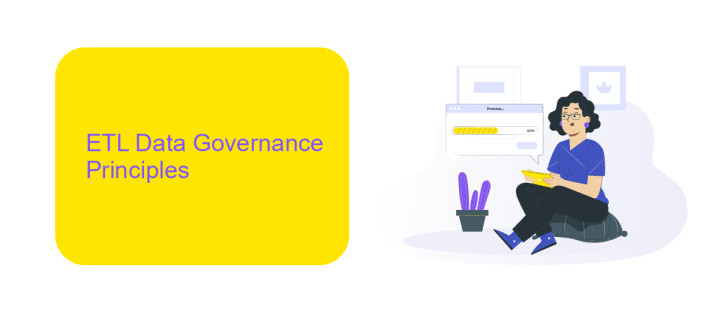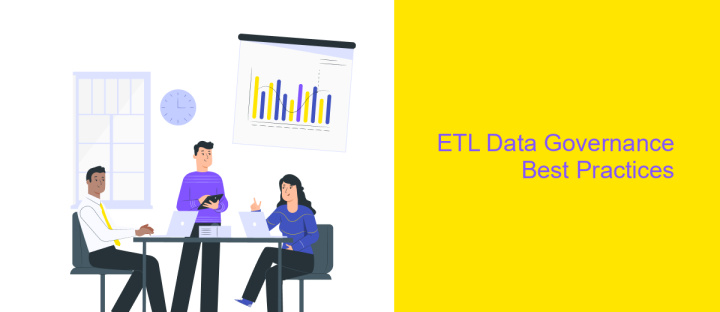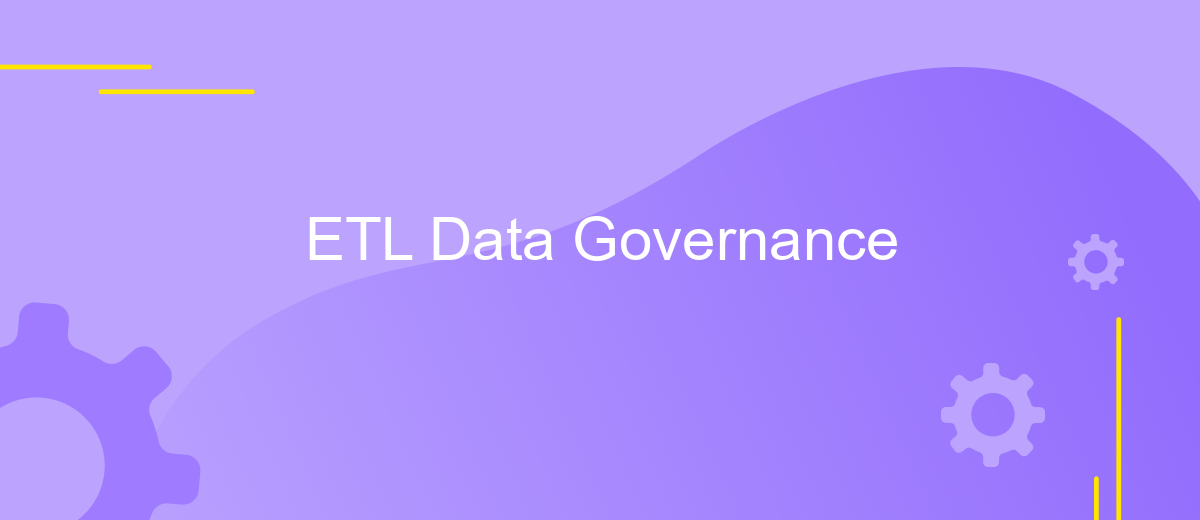ETL Data Governance
ETL (Extract, Transform, Load) Data Governance is a critical framework for ensuring the quality, security, and compliance of data as it moves through various stages of processing. By implementing robust governance practices, organizations can enhance data accuracy, streamline operations, and maintain regulatory standards, ultimately driving better decision-making and business outcomes. This article explores key components and best practices for effective ETL Data Governance.
Introduction and Overview
ETL Data Governance is a critical aspect of managing data flows within an organization. It ensures that data is extracted, transformed, and loaded (ETL) efficiently and securely. Proper governance helps maintain data quality, compliance, and overall integrity across various systems and processes.
- Data Quality Management
- Compliance and Security
- Process Optimization
- Integration Management
Effective ETL Data Governance involves the use of advanced tools and services to streamline integration processes. For instance, ApiX-Drive offers robust solutions for automating and managing data integrations, ensuring seamless data flow across multiple platforms. By leveraging such services, organizations can enhance their ETL processes, reduce errors, and achieve higher operational efficiency.
ETL Data Governance Principles

Effective ETL Data Governance is built on key principles that ensure data integrity, security, and compliance throughout the data lifecycle. One essential principle is data quality management, which involves continuous monitoring and validation of data to prevent errors and inconsistencies. This ensures that the data extracted, transformed, and loaded into the system is accurate and reliable. Another critical principle is data security, which encompasses protecting sensitive information from unauthorized access and breaches. Implementing robust encryption methods and access controls is vital for maintaining the confidentiality and integrity of the data.
Additionally, transparency and accountability are crucial for successful ETL Data Governance. Clear documentation and audit trails should be maintained to track data transformations and lineage. This helps in troubleshooting issues and ensuring compliance with regulatory standards. Utilizing integration services like ApiX-Drive can streamline the process of connecting various data sources and automating workflows, enhancing efficiency and reducing the risk of human error. By adhering to these principles, organizations can achieve a well-governed ETL process that supports accurate decision-making and regulatory compliance.
Benefits of ETL Data Governance

Implementing ETL Data Governance offers a multitude of benefits for organizations aiming to enhance their data management practices. By establishing a robust governance framework, businesses can ensure data quality, compliance, and operational efficiency.
- Improved Data Quality: ETL Data Governance ensures that data is accurate, complete, and consistent, reducing errors and enhancing decision-making processes.
- Regulatory Compliance: Adhering to data governance policies helps organizations comply with industry regulations and standards, mitigating legal risks.
- Operational Efficiency: Streamlined data processes reduce redundancy and improve workflow efficiency, saving time and resources.
- Enhanced Data Security: Governance frameworks protect sensitive information, ensuring data privacy and security.
- Better Integration: Services like ApiX-Drive facilitate seamless data integration across various platforms, enhancing the overall data ecosystem.
Overall, ETL Data Governance is crucial for maintaining high data standards and achieving strategic business goals. By leveraging tools like ApiX-Drive for integration, companies can further optimize their data management processes, ensuring that data remains a valuable asset.
ETL Data Governance Best Practices

Effective ETL Data Governance is crucial for ensuring data accuracy, consistency, and compliance within an organization. Implementing best practices can help streamline processes and mitigate risks associated with data integration and transformation.
Firstly, it is essential to establish clear data governance policies and procedures. These should define roles and responsibilities, data quality standards, and compliance requirements. Regular audits and reviews should be conducted to ensure adherence to these policies.
- Automate ETL processes where possible to reduce manual errors and improve efficiency.
- Implement robust data validation and cleansing mechanisms to maintain data quality.
- Utilize tools like ApiX-Drive for seamless integration and real-time data synchronization.
- Ensure data lineage and traceability to track data flow and transformations.
- Maintain comprehensive documentation for all ETL processes and data governance policies.
By following these best practices, organizations can enhance their ETL data governance framework, leading to more reliable and trustworthy data. Leveraging tools like ApiX-Drive can further simplify the integration process and ensure data consistency across various platforms.


Challenges and Future of ETL Data Governance
ETL Data Governance faces several challenges, including data quality, data integration, and compliance with regulations. Ensuring the accuracy and consistency of data as it moves through various stages of extraction, transformation, and loading is a significant hurdle. Additionally, integrating data from disparate sources can be complex and time-consuming, often requiring robust tools and services. Compliance with ever-evolving data protection regulations adds another layer of complexity, necessitating continuous monitoring and updates to governance policies.
The future of ETL Data Governance lies in automation and advanced technologies. Tools like ApiX-Drive can simplify data integration by providing seamless connectivity between various platforms, reducing manual intervention and errors. Leveraging artificial intelligence and machine learning can enhance data quality checks and streamline compliance processes. As organizations increasingly adopt cloud-based solutions, scalable and flexible ETL governance frameworks will become essential. Continuous innovation in this field will drive more efficient and secure data management practices, ensuring that businesses can derive maximum value from their data assets.
FAQ
What is ETL Data Governance?
Why is ETL Data Governance important?
How can ETL Data Governance be automated?
What are the key components of ETL Data Governance?
How do you ensure data quality in ETL processes?
Time is the most valuable resource for business today. Almost half of it is wasted on routine tasks. Your employees are constantly forced to perform monotonous tasks that are difficult to classify as important and specialized. You can leave everything as it is by hiring additional employees, or you can automate most of the business processes using the ApiX-Drive online connector to get rid of unnecessary time and money expenses once and for all. The choice is yours!

